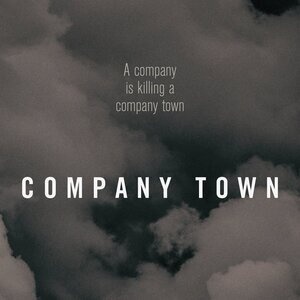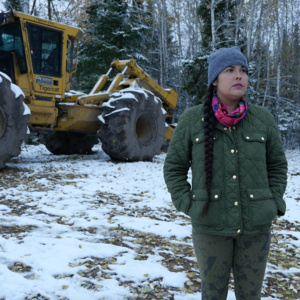Environmental Literature & Film Series
Past Featured Works
-
Little Pink House
By Courtney Balaker
March 27, 2019Co-Sponsored with the Environmental Law Society
Little Pink House dramatically chronicles the story of Susette Kelo, a resident of New London, Connecticut whose home was seized by the city under eminent domain as part of a redevelopment plan for the pharmaceutical giant Pfizer. Kelo’s struggle, along with her neighbors, eventually reached the US Supreme Court, whose 5-4 decision in Kelo v. City of New London affirmed the government’s right to condemn a neighborhood for the interests of private developers and corporate interests, and sparked widespread public and legislative effort to limit eminent domain abuses.
Followed by Q&A with Producer Ted Balaker
-

Failed Promises: Evaluating the Federal Government’s Response to Environmental Justice
Edited by David M. Konisky
March 16, 2017
Co-Sponsored with the Center on Law, Equality and Race and Environmental Law SocietyIn the 1970s and 1980s, the U.S. Congress passed a series of laws that were milestones in environmental protection, including the Clean Air Act and the Clean Water Act. But by the 1990s, it was clear that environmental benefits were not evenly distributed and that poor and minority communities bore disproportionate environmental burdens.
-

Merchants of Doubt: How a Handful of Scientists Obscured the Truth on Issues from Tobacco Smoke to Global Warming
By Naomi Oreskes and Erik Conway
October 27, 2016
Co-Sponsored with the Environmental Law SocietyIn seven compelling chapters, historians Oreskes and Conway explain how a loose–knit group of high-level scientists, with extensive political connections, ran effective campaigns to mislead the public and deny well-established scientific knowledge over four decades.
-

This Changes Everything
By Naomi Klein
February 25, 2016
Co-Sponsored with the Environmental Law SocietyIn this provocative book, Naomi Klein tackles the most profound threat humanity has ever faced: the war our economic model is waging against life on earth. Klein exposes the myths that are clouding the climate debate. We have been told the market will save us, when in fact the addiction to profit and growth is digging us in deeper every day. We have been told it’s impossible to get off fossil fuels when in fact we know exactly how to do it—it just requires breaking every rule in the “free-market” playbook: reining in corporate power, rebuilding local economies, and reclaiming our democracies. Prof. Benjamin van Rooij facilitated the discussion.
-

DamNation
November 12, 2015
Co-Sponsored with the Environmental Law Society
This powerful film explores the change in our national attitude toward big dams—from having pride in them as engineering wonders to the growing awareness that our own future is bound to the life and health of our rivers. DamNation shows how far things have moved and how quickly, from the assumption 50 years ago that dams were always a power for good, to the first successful attempt to remove a marginal dam 20 years ago on the Kennebec River. The film highlights other dam removal stories, including the Elwha and White Salmon Rivers in Washington, the Rogue River in Oregon, and the Penobscot River in Maine.
-

The Omnivore’s Dilemma: A Natural History of Four Meals
By Michael Pollan
February 26, 2015Co-Sponsored with the Environmental Law Society and the Student Animal Legal Defense Fund
In this groundbreaking book, Michael Pollan turns his own omnivorous mind to the seemingly straightforward question of what we should have for dinner. To find out, Pollan follows each of the food chains that sustain us—industrial food, organic or alternative food, and food we forage ourselves—from the source to a final meal, and in the process develops a definitive account of the American way of eating.
-

The Slums of Aspen: Immigrants vs. the Environment in America’s Eden
By Lisa Sun-Hee Park and David Naguib Pellow
October 21, 2014Co-Sponsored with the Center on Law, Equality and Race and the Environmental Law Society
Tracking the lives of immigrant laborers through several years of exhaustive fieldwork and archival digging, The Slums of Aspen tells a story that brings together some of the most pressing social problems of the day: environmental crises, immigration, and social inequality. Park and Pellow demonstrate how these issues are intertwined in the everyday experiences of people who work and live in this wealthy tourist community.
-

Gasland Part II
March 20, 2014
In this explosive follow-up to his Oscar®-nominated film GASLAND, filmmaker Josh Fox shows how the stakes have been raised on all sides in one of the most important environmental issues facing our nation today. The film argues that the gas industry’s portrayal of natural gas as a clean and safe alternative to oil is a myth. Flier -

The Deliberative Practitioner
by John Forester
John Forester, Professor of City & Regional Planning at Cornell University, came to UCI Law to participate in a public dialogue of his pathbreaking and highly influential book, which takes accounts of practitioners in urban and rural settings, North and South, to show how skillful deliberative practices can facilitate practical and timely participatory planning processes. The conversation, moderated by Professor and CLEANR Director Alejandro Camacho, considered the book as situated in Forester’s broader work and planning and legal practice more generally. Event details
February 27, 2014 -

Last Call at the Oasis
November 7, 2013
Illuminating the vital role water plays in our lives, exposing the defects in the current system and depicting communities already struggling with its ill-effects, the film features activist Erin Brockovich and such distinguished experts as Peter Gleick, Alex Prud’homme, Robert Glennon and Jay Famiglietti, UC Irvine Professor of Earth System Science and Founding Director of the UC Center for Hydrologic Modeling. Prof. Famiglietti will answer questions following the screening. Flier -

Where the Bluebird Sings to the Lemonade Springs
by Wallace Stegner
September 25, 2013Nominated for a National Book Critics Circle award, this book covers subjects ranging from the writer's own “migrant childhood” to the need to protect what remains of the great western wilderness, and includes poignant profiles of western writers such as John Steinbeck and Norman Maclean.
-

Dumping in Dixie: Race, Class and Environmental Quality
by Robert Bullard
February 19, 2013Dr. Bullard, Dean of the Barbara Jordan-Mickey Leland School of Public Affairs at Texas Southern University in Houston, is often described as the father of environmental justice, and Dumping in Dixie is a standard text in the environmental justice field.
-

The Death and Life of Great American Cities
by Jane Jacobs
November 1, 2012Described by The New York Times as “perhaps the most influential single work in the history of town planning” and “a work of literature.” Jacobs, an editor and writer on architecture in New York City in the early '60ss, argued that urban diversity and vitality were being destroyed by powerful architects and city planners.
-

Mountains Without Handrails: Reflections on the National Parks
by Joseph Sax
October 2, 2012Joseph Sax, Emeritus James H. House and Hiram H. Hurd Professor of Environmental Regulation at UC Berkeley School of Law, participated in an open public discussion of his iconic book. Professor Sax is currently a fellow of the American Academy of Arts and Sciences, and his awards and citations include the Blue Planet Prize, the Elizabeth Haub Environmental Prize of the Free University of Brussels, the Audubon Society's Conservationist of the Year Award, the William O. Douglas Legal Achievement Award from the Sierra Club, and the Environmental Quality Award of the U.S. Environmental Protection Agency. He has been a visiting professor at Stanford University and the Universities of Utah and Paris, and was a fellow at the Center for Advanced Study in the Behavioral Sciences.



